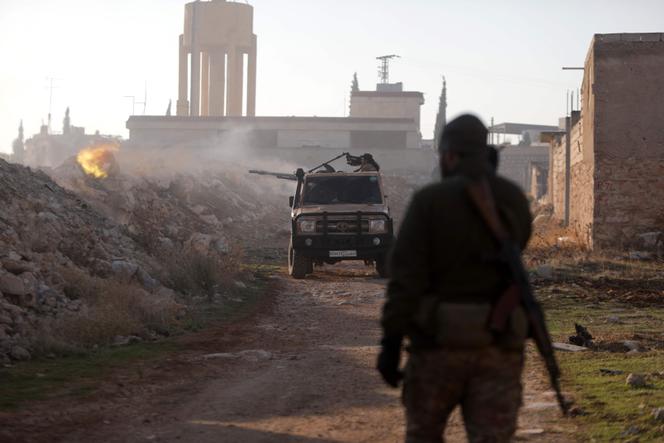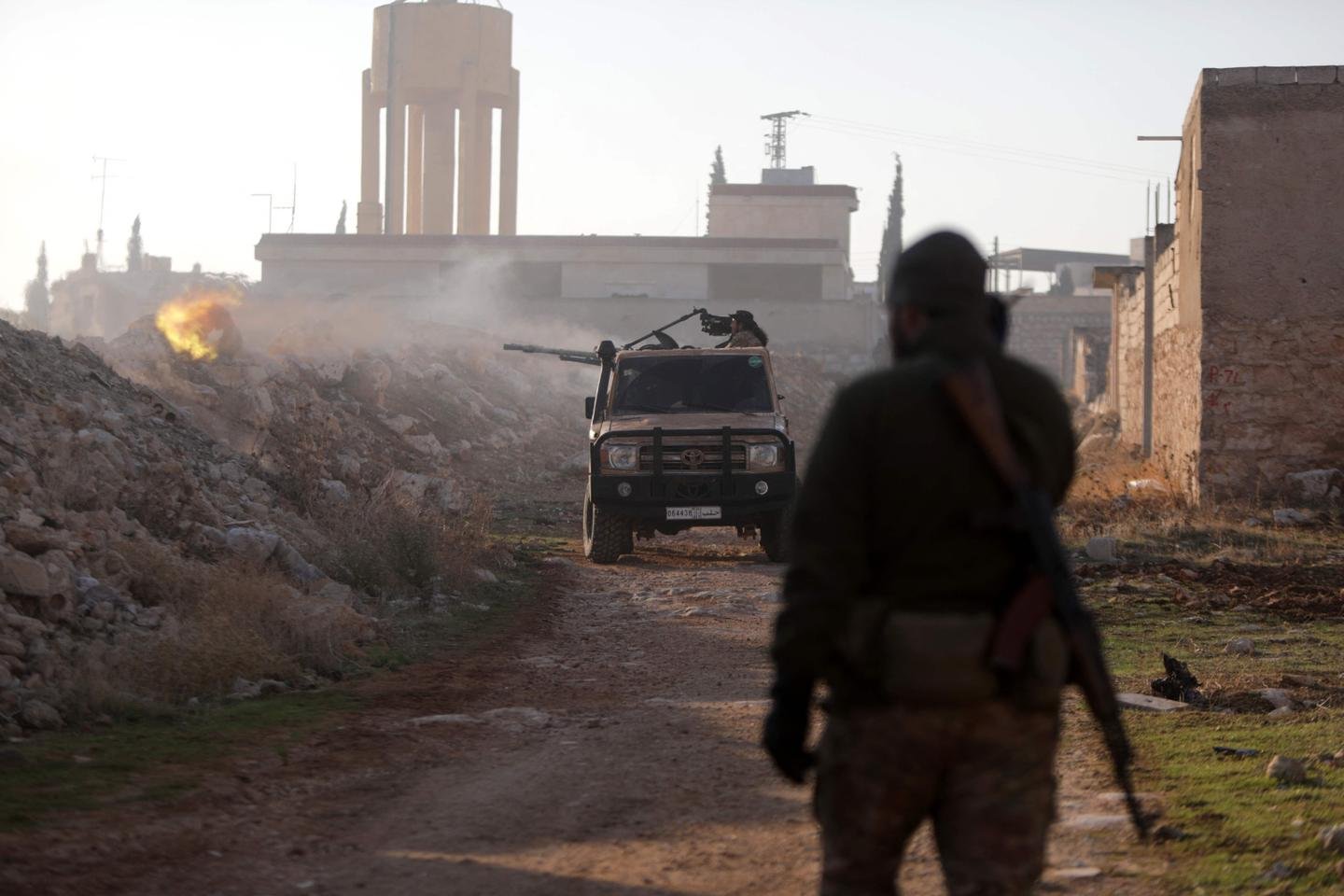Turkey-backed jihadists launched a surprise offensive this week in Syria, killing 255 and displacing 14,000 people.

Jihadists shelled Syria’s second city, Aleppo, on Friday, November 29, in a major offensive against government troops that has sparked some of the deadliest fighting the country has seen in years. The violence has killed 255 people, according to a Syrian war monitor, most of them fighters on both sides. The toll also includes 24 civilians, most killed in Russian air strikes.
The jihadists, supported by factions backed by Turkey, which neighbors Syria and backed the rebellion against Syrian President Bashar al-Assad, launched a major surprise offensive in the country’s north and northwest against government forces on Wednesday. By Friday, the rebels had wrested more than 50 towns and villages in north and northwestern Syria, according to the Syrian Observatory for Human Rights, and reached the Syrian government-held city of Aleppo. Hayat Tahrir al-Sham (HTS) and allied factions “are now in the southwestern and western neighborhoods of Aleppo city”, said Rami Abdel Rahman, who heads the Syrian Observatory for Human Rights.
Army reinforcements have arrived in Aleppo, a Syrian government security official told Agence France-Presse (AFP), requesting anonymity to discuss sensitive matters. The official added that “there are fierce battles and clashes west of Aleppo, but they have not reached the city.” An army statement said troops had repelled the assault on the city and retaken some positions.
Rahman, director of the Observatory, said Assad’s forces “were totally unprepared” for the attack. “It is strange to see regime forces being dealt such big blows despite Russian air cover and early signs that HTS was going to launch this operation,” Abdel Rahman said. “Were they depending on Hezbollah, which is now busy in Lebanon?”
The offensive began at a sensitive time for Syria and the region, with a fragile ceasefire between the Iran-backed Hezbollah and Israel taking effect earlier this week in neighboring Lebanon.
International players
Syria’s civil war began when Assad’s forces cracked down in 2011 on pro-democracy protests. Since then, the conflict has killed more than 500,000 people, displaced millions and morphed into a complex war drawing in jihadists and foreign powers, including Assad’s allies Russia, Iran and Hezbollah.
Kremlin spokesman Dmitry Peskov on Friday described the situation in Aleppo as “an infringement on the sovereignty of Syria.” He expressed support for “the government of Syria to quickly restore order in this district and restore the constitutional order.”
Partner service
Learn French with Gymglish
Thanks to a daily lesson, an original story and a personalized correction, in 15 minutes per day.
Try for free
At a press conference earlier this week, Mohamed Bashir of the jihadist Hayat Tahrir al-Sham (HTS) said: “This operation aims to repel the sources of fire of the criminal enemy from the frontlines.” HTS, led by Al-Qaeda’s former Syria branch, controls swathes of the Idlib region as well as small parts of neighboring Aleppo, Hama and Latakia provinces. The Idlib area, where the jihadists are based, has been subject to a Turkey and Russia-brokered truce since 2020. The ceasefire has been repeatedly violated but had largely been held.
Le Monde with AFP
Vous pouvez lire Le Monde sur un seul appareil à la fois
Ce message s’affichera sur l’autre appareil.
-
Parce qu’une autre personne (ou vous) est en train de lire Le Monde avec ce compte sur un autre appareil.
Vous ne pouvez lire Le Monde que sur un seul appareil à la fois (ordinateur, téléphone ou tablette).
-
Comment ne plus voir ce message ?
En cliquant sur « » et en vous assurant que vous êtes la seule personne à consulter Le Monde avec ce compte.
-
Que se passera-t-il si vous continuez à lire ici ?
Ce message s’affichera sur l’autre appareil. Ce dernier restera connecté avec ce compte.
-
Y a-t-il d’autres limites ?
Non. Vous pouvez vous connecter avec votre compte sur autant d’appareils que vous le souhaitez, mais en les utilisant à des moments différents.
-
Vous ignorez qui est l’autre personne ?
Nous vous conseillons de modifier votre mot de passe.
Lecture restreinte
Votre abonnement n’autorise pas la lecture de cet article
Pour plus d’informations, merci de contacter notre service commercial.
